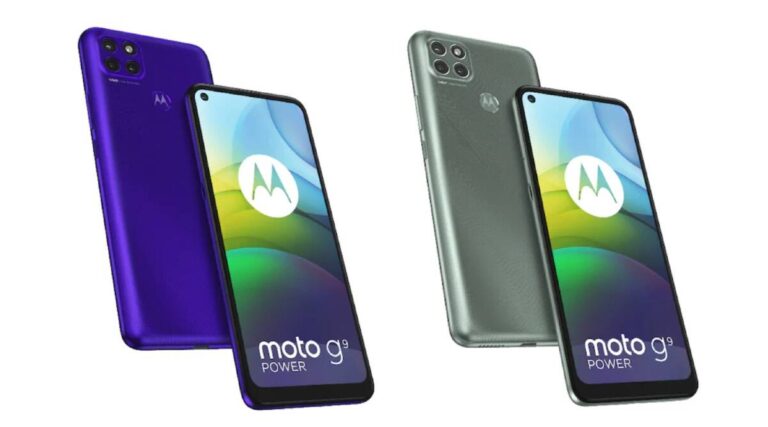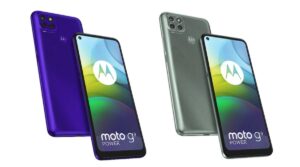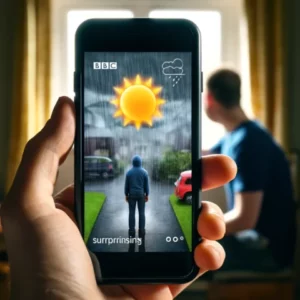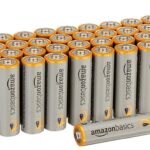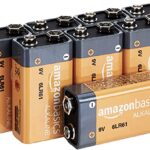At the end of 2020, Motorola released the Moto G9 Power smartphone as the final of three phones in the G9 series, which also included the G9 Plus and the G9 Play. Last year, it was charmed by the G9 Play, which neatly packaged all the basics in a phone and tied it with a nice £159 ribbon. The G9 Power goes a step further, providing even better value for the money.
What will you see here?
Design and build:
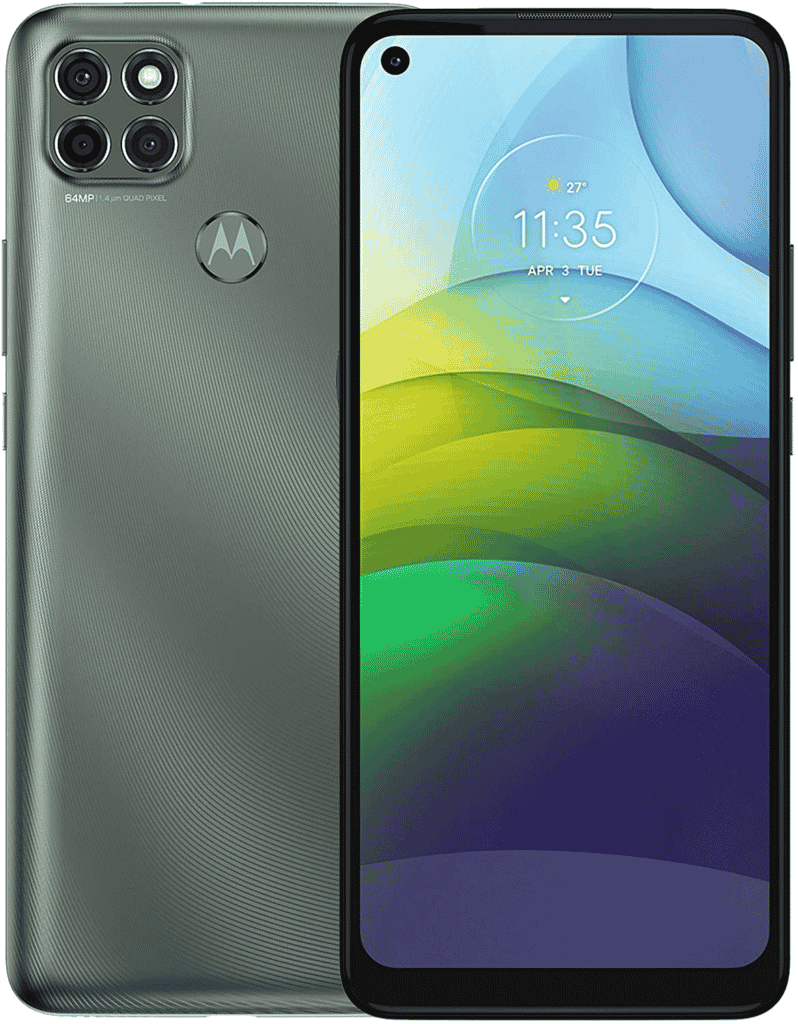
It’s difficult to imagine the Moto G9 Power smartphone has a big 6000 mAh battery in such a little package.
- It’s somewhat heavier than the Moto G9 Play at 221 g.
- The back has a matte surface that is embossed with concentric ridges to aid enhance grip. It has a tough yet attractive appearance, with a frosty shine that, in my experience, keeps dirt and smudges away.
- It’s a far cry from the G9 Play’s hyper-glossy plastic rear, which was far from smudge-proof.
- Oh, and the phone is also water-resistant.
- While the G9 Power is tall at 6.8in, it’s not difficult to use, thanks in part to its low weight. Yes, single-handed use may be tough if you have tiny hands – in which case, one of these mini phones may be preferable – but it wasn’t a problem for me. Indeed.
- On the rear of the G9 Power is a reliable fingerprint scanner. It may take some getting used to if you’re used to in-screen fingerprint readers, however, the central location makes it easy to access.
- Furthermore, if you like, you may use the face unlock option, which, shockingly, performed great even in low light. As for me, you will enjoy the old-fashioned code unlock.
Smart Assistants
If you rely on smart assistants frequently, the G9 Power offers a dedicated smart assistant button that opens Google Assistant. It wasn’t really handy — what you’ll find more useful is the 3.5mm headphone jack. If you prefer wireless listening, Bluetooth 5.0 is also available.
Stunning display:
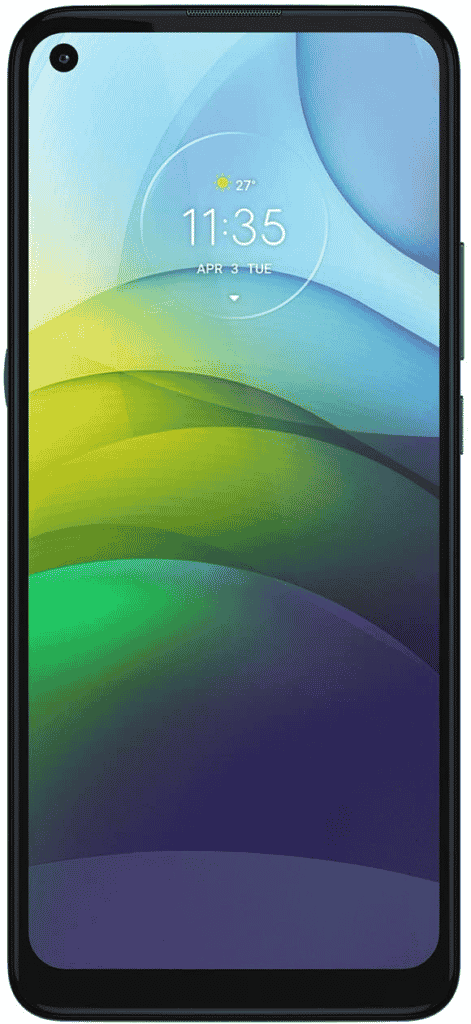
Okay, this is where the G9 Power and G9 Play differ noticeably. While the change is slight, the G9 Power has crisper contrast and more vibrant, punchier colors. Motorola clearly designed the G9 Power to be an art space – you could actually spend hours viewing videos or surfing through social media on this phone.
While the G9 Power is an improvement over the G9 Play, it still does not have the greatest display possible on a cheap phone. The Xiaomi Poco X3 NFC, which continues to be the greatest affordable phone on the market, outperforms the G9 Power – as it did the G9 Play – with a 120Hz FHD+ (1080 x 2400) display that supports HDR10.
Keep in mind that the Poco X3 costs an extra £20 and has a smaller battery. And whether or not that update is worthwhile is totally dependent on how you use your smartphone (do you watch a lot of movies or just skim through news or text?). For day-to-day use, the G9 Power will suffice.
Cameras:
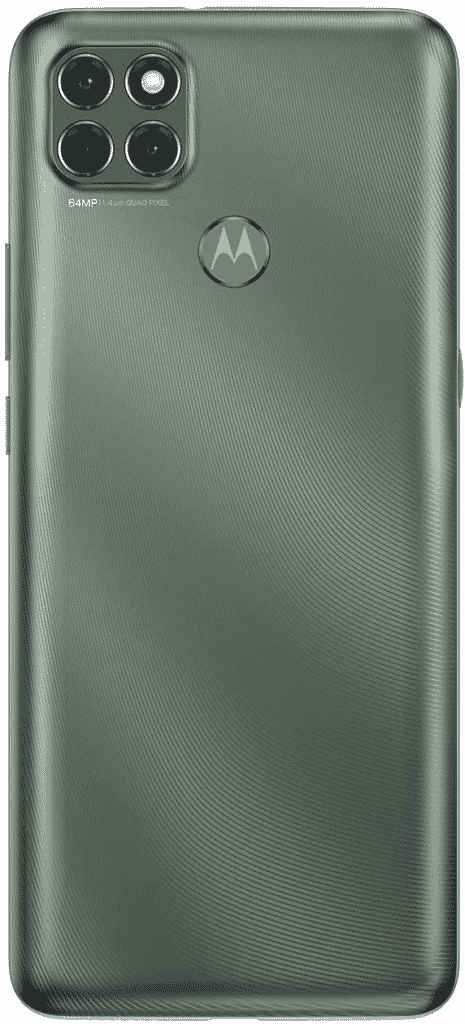
The Moto G9 Power smartphone’s main sensor is 64Mp, which is a key selling feature, although it is far from its strong suit. Unless you’re in a highly illuminated setting, there’s not a lot of dynamic range or detail — an issue shared with the G9 Play.
While the G9 Power has a bigger 64Mp camera, you must first enable the Ultra-Res option in the settings to snap photos at the original resolution. This increases the image’s detail, thus it’s possibly the most beneficial choice in the camera menu. But remembering this setting every time you use the camera might get a little tedious.
Night photography is also subpar. Images lack depth and detail, and colors become even flatter. The G9 Power does better low close-ups indoors than outside, but there is some grain. A 2Mp macro and a 2Mp depth sensor are also included in the rear cameras. Macro photos, like the G9 Play, didn’t pick up much detail, and it was tough to have the camera focus where you needed it to.
Software and UX

The Power runs Android 10, but Motorola claims that it will soon be upgraded to Android 11. The user interface is basic and clean, and it is nearly entirely pure Android, with no bloatware or pre-installed programs. In fact, the operating system is so streamlined that you won’t even find a separate folder for your photos; everything is stored in Google Photos.
It, like the G9 Play, has useful features such as turning on the flashlight with a karate chop motion and three-finger screenshot capturing — a function that I appreciated on the G9 Play. You also receive the G9 Play’s ‘Gametime’ mode, which allows you to play without being distracted. When it comes to user experience, the G9 Power and Play are nearly identical – except that with a larger battery. You can do much more!
Performance:

The G9 Power comes with 4GB of RAM and 128GB of storage that can be upgraded to 512GB with a microSD card. For the most part, the G9 Power ran on par with the G9 Play in benchmark scores. However, it did somewhat outperform the Play. Their comparable results aren’t totally surprising given that the G9 Power shares the majority of its specifications with the G9 Play. Also includes the Snapdragon 662 processor.
The Power, like the Play, outperformed the Xiaomi Redmi 9 in all gaming tests. The Redmi 9 is less expensive at £139 and ranks seventh in our roundup of the top budget phones. However, if you really want to compare prices, the actual rival to the G9 Powerhouse is the Realme 7 (non-5G model), which is likewise priced competitively at £179.99.
The Realme 7 outperformed the G9 Power, including the total CPU score. It’s quick and has a 90Hz Full HD (2400×1080) display, making it ideal for gaming. If gaming is important to you, the Realme 7 may be a better choice you’ll simply have to deal with the Realme UI.
Battery life:

The G9 Power’s main advantage is its 6000mAh battery. When Motorola claims 60 hours of phone use per charge, it is not exaggerating. In reality, cautious phone users may easily extend the battery life to four or five days.
The G9 Power lasted 16 hours and 18 minutes in our battery. This takes the phone through a series of power-draining tasks without pausing – just slightly longer than the G9 Play’s 16 hours and 4 minutes. Yes, it’s not 60 hours, but you’re unlikely to use the smartphone continually at full power for that long.
Even though the battery was depleted to 15% after the 16-hour test, it took an extra day for it to decline to 6% with light use and without the assistance of a battery-saving mode. The phone also includes a 20W fast charger. You can restore 27% of the battery life from zero in 30 minutes. This may not sound like much, but it’s also 27% of a 6000mAh battery, which corresponds to at least four hours of screen-on time.
The G9 Power, like the G9 Play, is similarly suited to battery-sucking chores like viewing movies and surfing around social media. Also casual games, but you get the benefit of a bigger, more vibrant display.
Price and Availability

Motorola or parent brand Lenovo, as well as Carphone Warehouse, John Lewis,
Conclusion
If you had to choose between the G9 Play and the Moto G9 Power smartphone, the Power is unquestionably superior. In many ways, evaluating the Power reminded me of reviewing the £159.99 G9 Play. Which is effectively the same phone but with a bigger battery and a better screen for £20 more. This makes the G9 Power an obvious recommendation for streaming programs, casual gaming, and social media surfing. While the cameras might be improved, you do get a 64Mp sensor instead of Play’s 48Mp. Just be aware that capturing images throughout the day and with lots of light is preferable. If you want to impress your Instagram pals, skip this phone.
Read more
- Samsung Odyssey G9 Review-Curved and ultrawide Gaming monitor!
- Best Motorola phones: Budget phones you can buy in 2025!
- Best easy-to-use phones for older people!
- OnePlus Nord N20 5G – An Affordable Phone with Flagship Features!


